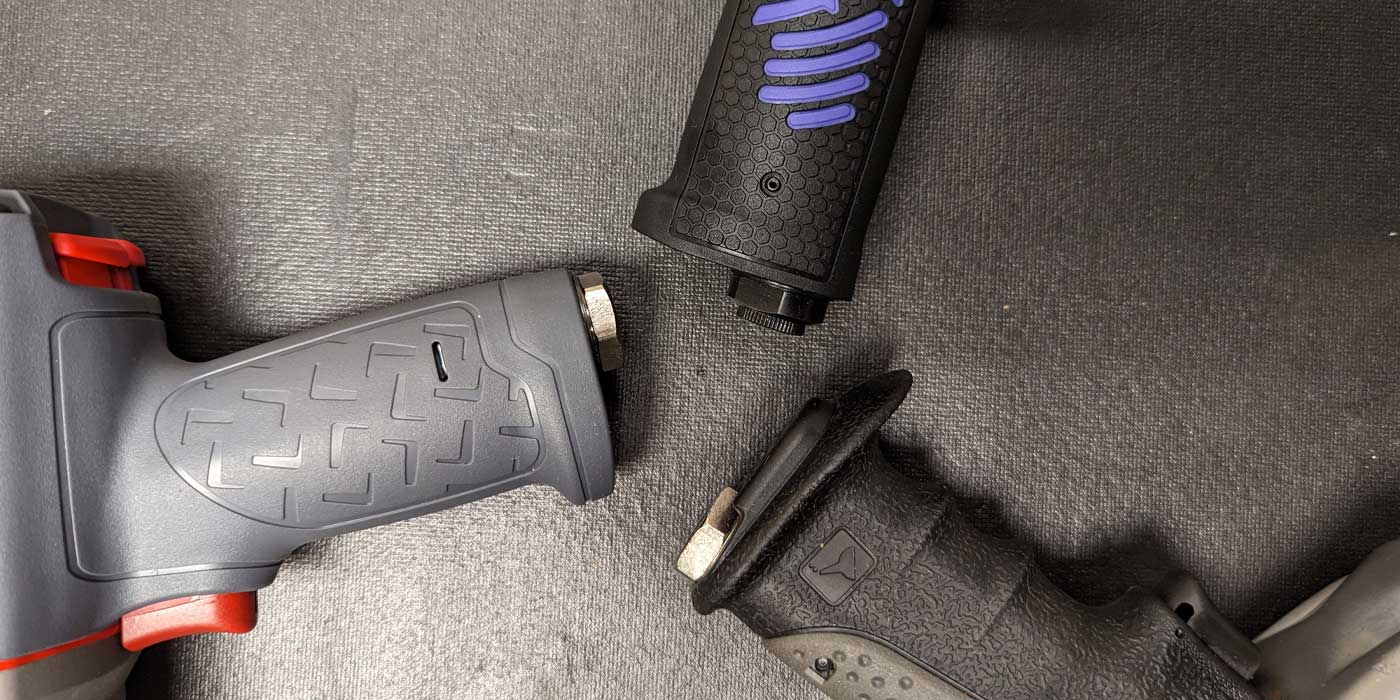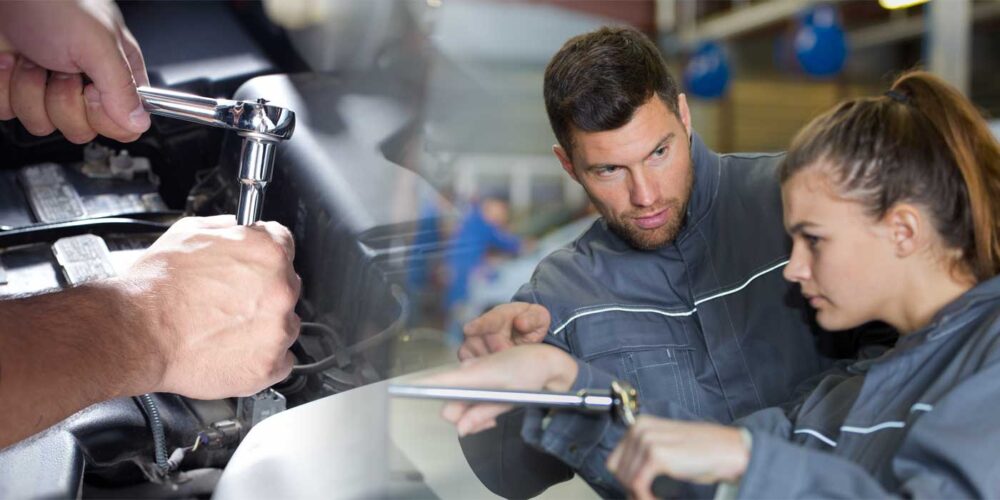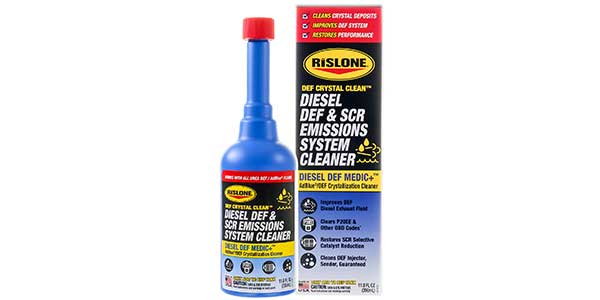If your dealership detail department looks like the one in the photograph above, or worse, then you need to do an “anatomy of the department.” That is, if it really bothers you to have a department that looks like the one in the photo.
In discussions with several dealers at the NADA Expo, they all indicated that their shops looked like what you see above and worse, but were not sure why, blaming the people who worked in the shop or some other nebulous reasons.
The reality is that the shop looks like that because the dealer, general manager or whomever is in charge of the detail department allows it to look like that, and consequently, to operate inefficiently, and in most cases, unprofitably.
Often, the reason is that those in charge do not know what to do to change the situation or where to go to get help, and some, unfortunately, do not care.
What I hope to do is shed some light on how a dealership can make positive changes in their detail department and make it more organized, efficient and profitable, while turning out good quality work.
Principles of Production
To begin our anatomy, let us take a look at the elements of the detail shop that need to be studied, which are often called the Principles of Production. They make any service department what it is. They are, in order of importance:
- Management
- Personnel
- Facilities
- Equipment
- Chemicals and Supplies
Management – Honestly, if we look at the management of the detail department in the majority of dealerships, it is lacking. Usually the service manager, the body shop manager or the fixed operations manager is given the responsibility. The problem is that they do not want the job and worse they really do not know much about detailing or what to manage.
How can you manage something you know nothing about? It often comes down to, “if the used car manager is not complaining about the work, everything is OK.”
Usually, there are no operational performance standards that the department is measured against. No one really knows what the ratios between labor and production should be or what chemical costs are normal or abnormal.
Since the person in charge of the department has another responsibility such as the service department, body shop and all of the fixed operations, they spend little or no time in the department, so they put someone in charge of the shop. That is either someone they call the shop manager or supervisor.
The problem here is that this person is chosen not on their ability to manage or supervise, but on their detailing ability, “the best detailer,” or the person who has been there the longest. Very little management is done by this person, and even if they wanted to manage, they do not have the skills or are they even given performance standards.
Is it any wonder there is a management problem in dealership detailing departments?
Personnel – Take a serious look at the personnel in the detail department. Would you hire them for any other position in the dealership? That is a harsh question, but when I ask most dealers they say, “NO!” Then why hire them to work in your detail department?
Doesn’t that department deserve the kind of people you hire in other departments?
The mistake that dealers make with regard to detail personnel is that their first criteria in hiring for the detail department is, “do they know how to detail.”
This is a mistake for a number of reasons:
- Do not hire skills; hire values and teach skills
- Good detailers are working, bad ones are not
- Their experience is only good if you let them do what they want
- They are typically not trainable
That is just a start to the many reasons to hire a person with a good work ethic and good values and teach them what they need to know. There are some excellent trainers who will come to your dealership and train the entire staff in only a few days. But you can’t train experienced detailers, they already “know everything!”
Other things to check when hiring for the detail department:
- The applicant’s driving record; a bad driving record is a sign of a problem employee
- Do they have a valid driver’s license
- Will they agree to a drug test
- How many jobs have they had in the last year? A number of short-term jobs are another sign of a problem employee.
Keep in mind, you have a wonderful opportunity to hire a “career-oriented” person. Your dealership or dealership group can offer that person growth and stability, etc. Things that most detail employees have never had, nor do they appreciate.
You simply need to up the standards for the people you hire and, as mentioned, do not hire people with detailing experience.
When you run an advertisement DO NOT MENTION detailing in the ad. Something like this:
AUTO SERVICE TRAINEES – Acme Auto Group has immediate openings for a new service department. No experience necessary, will train. Only career-oriented people, with a stable work history need apply. Must have a valid driver’s license, good driving record and submit a resume. Drug testing will be required.
This will eliminate the riff-raff you do not want to hire anyway. Conditions are too strict for the wrong kind of employee.
Facilities – In most dealerships, this is a “mixed bag.” For some, the detail department occupies whatever leftover space there is available to clean cars, with little or no thought given to what is needed in terms of space to operate an efficient detail department. In these dealerships, the place looks like what could be called “The Black Hole of Calcutta.” Poor lighting, insufficient space getting cars in and out and many do the engine cleaning and washing in the same bays that they clean and shampoo interiors. Others have a well laid out space with separate wash bays and detail bays and good lighting, but they have allowed the detailers to turn the space into an unsightly “pig-pen.” In both cases, this reflects little thought or attention has been given to the detail department and what is needed for efficient facilities or space.
Certainly, what is needed are wet bays for engine cleaning, wheel cleaning and jamb cleaning, as well as hand washing, if an automatic wash is not available at the dealership. Good lighting is required that not only provides light on the tops of vehicles, but also the sides and interiors. It should not be so bright that every flaw in the paint is visible even when they would not be visible in natural sunlight.
The number of bays should be predicated on the volume of work through the department:
- Used Car Recons
- New Car Get-Ready
- New and Used Car Deliveries
- Auction Cars
- Rental Cars
- Salesmen’s Demos
- Retail Details
Equipment – Without exception, the technology used in the majority of dealership detail departments is archaic at best, considering the cost of vehicles today with high-tech clear-coat paint finishes, interior leathers, plastics, alloys, etc.
There are several reasons for this lack of better technology:
1. Most detailers do not have a clue what advanced technology is available because they “do what they have always done.” And there is nothing available for them to learn.
2. Most dealers or those in charge of the detail department will not spend any money on advanced technology for the detail department.
As a result, the dealer is paying for equipment they do not have in higher labor costs and less production.
The rule to be followed is this, “if equipment can increase productivity and reduce labor, then buy it.”
Chemicals and Supplies – The typical detail shop has numerous unmarked plastic bottles with mysterious contents in them. Besides being unsightly and disorganized, it is a violation of OSHA regulations, which require any employer, whose personnel work with chemicals, have a Hazardous Communication Program in place and that all chemical containers be clearly marked as to contents and that each employee knows what to do in the evident of exposure to these chemicals.
The handling of chemicals in this way is costing the dealer hundreds of dollars a month through chemical misuse, mis-dilution, waste and theft.
No one in charge really knows what chemicals are needed or how much. The chemical supplier or suppliers are masters at “influencing” the detail department manager or supervisor to buy their chemicals and you multiply this by three or four suppliers and you have a very unhealthy situation.
Anatomy Complete
The key to a complete anatomy are the 3 A’s:
- Awareness – becoming aware of problems and what the problems are
- Acceptance – honestly accepting that you have problems that need to be corrected
- Action – finally being willing to take action to correct the problems.
If you take the time to view your detail operation using these five Principles of Production, I think you will see that there are problems that are costing your dealership a lot of money.
Bud Abraham













